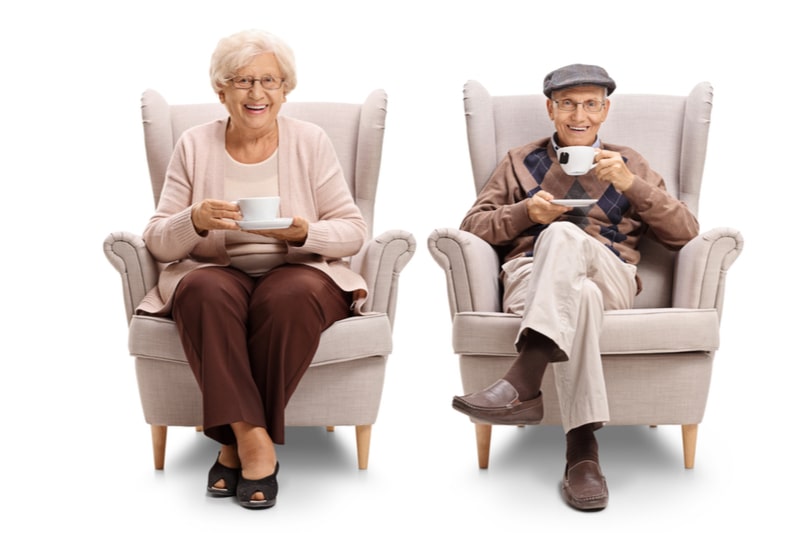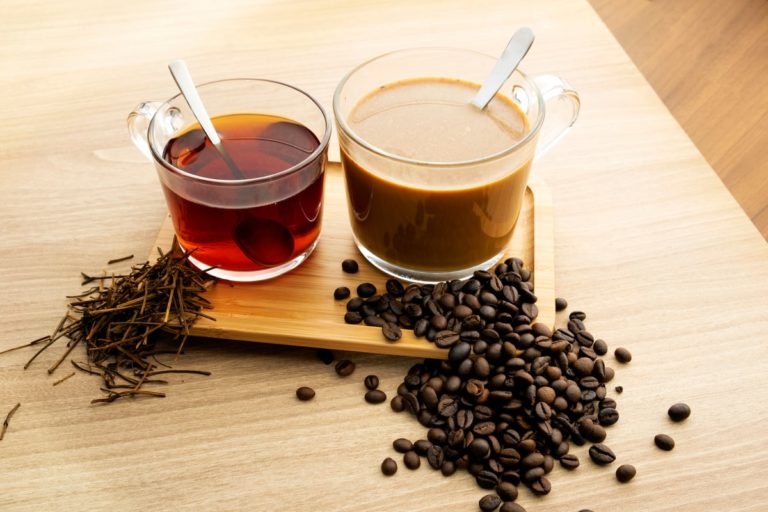“I Love Coffee, I Love Tea, I Love the Boys and the Boys Love Me”
Everyone who is old enough to remember this childhood rhyme please raise your hands.
So, childhood rhymes aside, which is better for aging seniors – coffee or tea?
Firstly, did you know that the most widely consumed stimulant drug in the world is caffeine which is naturally found in coffee and tea?
Both beverages contain antioxidants which might reduce your risk of cancer and diabetes.
Green tea also contains catechin which is considered an antioxidant with anti-inflammatory properties.
But, in the case of either beverage – always drink in moderation.
Consuming more than four or five cups per day could bring about unnecessary and unwanted health risks caused by large amounts of caffeine.
Coffee or Tea. Which is Right For Me?
The Case For Coffee
Let’s begin with coffee.
If you’re looking for a quick buzz coffee is the winner.
Because coffee has a stimulatory brain effect it may limit the risk of Alzheimer’s disease. According to a study by the Krembil Brain Institute, coffee consumed in moderation will improve memory and concentration.
It can also help to reduce depression which is a major benefit to seniors who live alone.
Another large study in 2013 by the Harvard School of Public Health (HSPH) “found that when people increased their coffee consumption by more than one cup per day over a four-year period, they had an 11% lower risk of developing type 2 diabetes.”
Coffee can also lower the risk of oral, liver, colon, prostate, and breast cancers.
But you need to stay away from caffeinated coffee late in the afternoon and avoid drinking more than four cups. Both can cause jitteriness, restlessness, and insomnia. Also, keep the calories down by avoiding large amounts of cream and sugar.
The Case For Tea
Tea For Two and Two for Tea, Anyone?

Did you know that, after water, tea is the most frequently consumed beverage in the world?
There is an enormous number of selections available in the categories of black, green, and herbal teas.
The benefits of tea are:
(1) It protects bones and helps in maintaining bone strength and reducing the risk of osteoporosis which can aid in preventing bone fractures and falls among seniors.
(2) Drinking tea can hinder harmful bacterial growth in the mouth which will lessen the risks of gum disease and tooth decay – possibly lessening the need for dentures.
(3) Like coffee, tea is rich in antioxidants, which can boost the immune system and defend against colds and flu. In fact, The National Cancer Institute reported that “antioxidants in tea have been shown to slow the growth of tumors”.
(4) Tea is rich in polyphenols which activate longevity genes – three cheers for a long and healthy life!
In another study, it was found that regular tea drinkers had a lower body mass index.
Senior Fitness For Life has reported that tea will hydrate you, reduce stress, and will improve cognitive performance because of the interaction between L-theanine and caffeine.
Coffee or Tea? Here’s The Bottom Line
Both coffee and tea have drawbacks as well as benefits.
Both can add on calories if they are saturated with cream and sugar. Too much caffeine in either beverage can produce anxiety and sleep disorders. Both beverages have weight loss properties and anti-cancer effects.
In both coffee and tea, it is important to not consume more than four cups per day.
Between the two, only you can decide which is the right one for you.
We will be glad to share your favorite hot beverage with you when you arrive for an appointment with Rachel at Kabb Law:
Call 216-991-5222 today!

